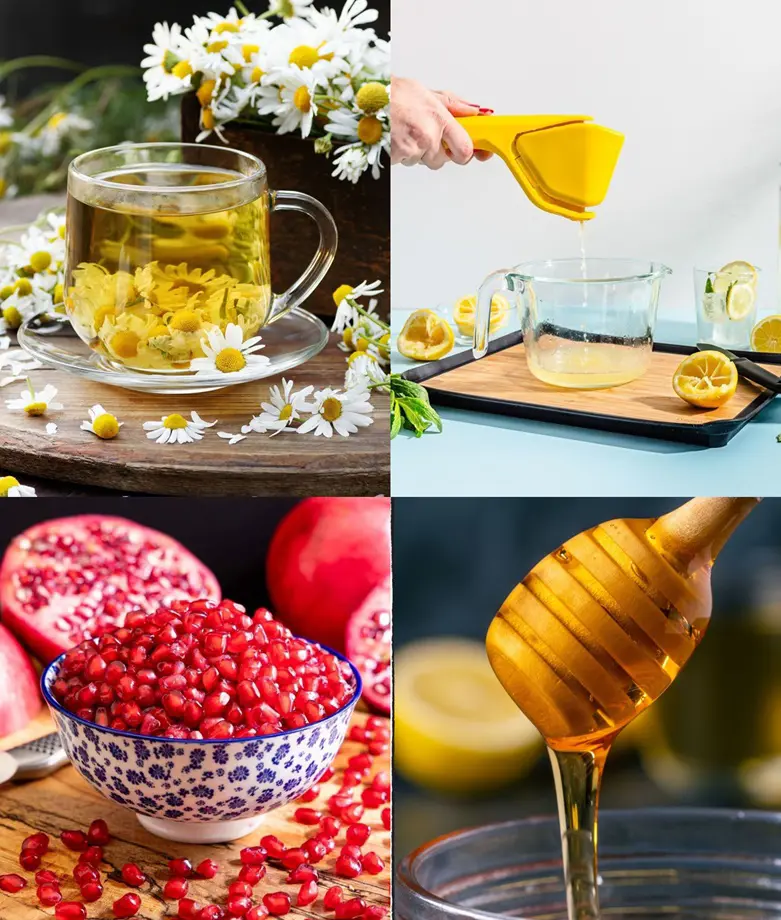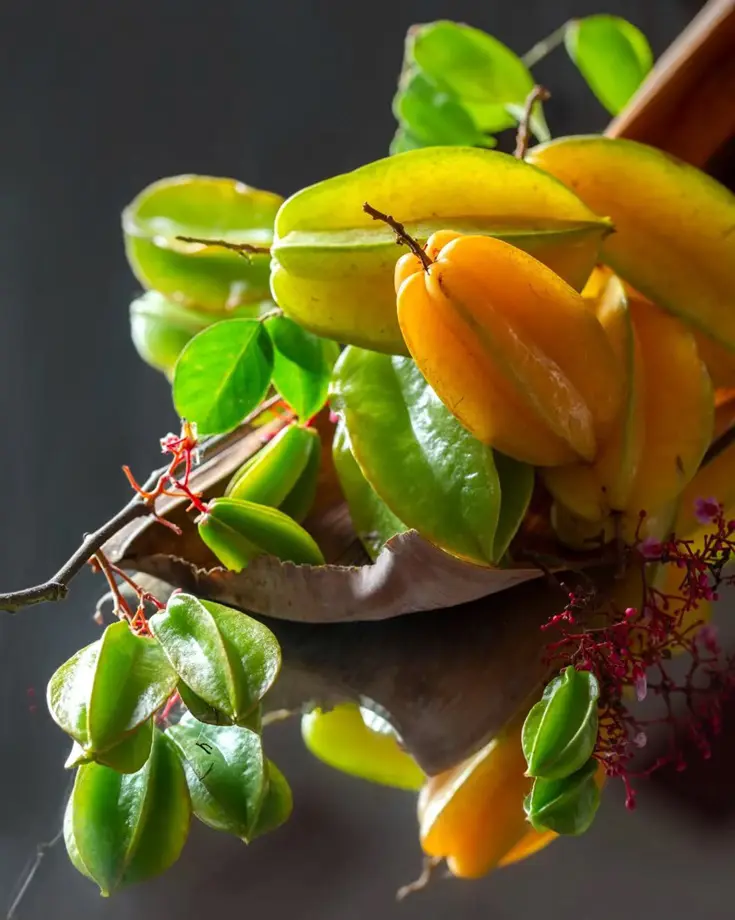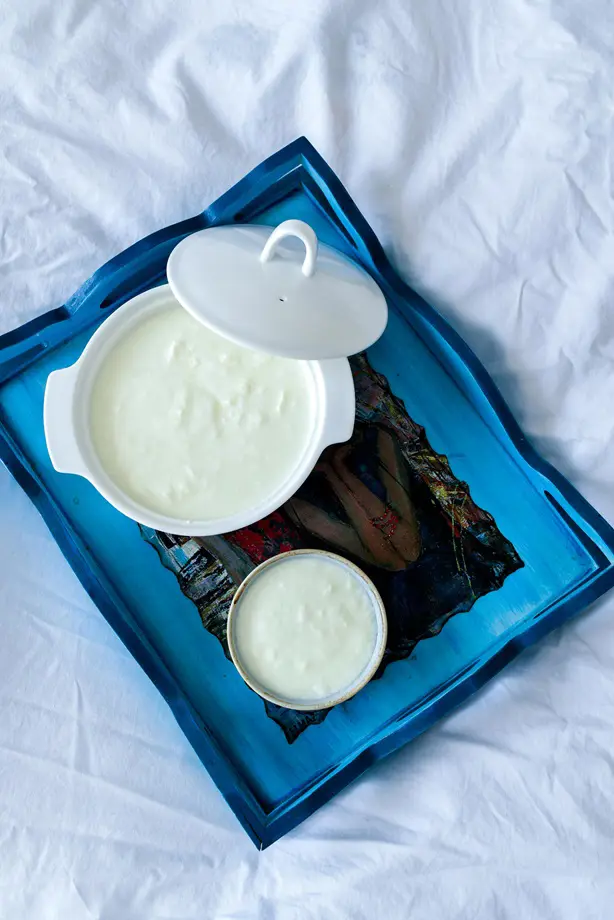20+ Home Remedies For Dry Skin

This post may contain affiliate links. If you make a purchase through links on our site, we may earn a commission.
Dry skin is a common problem that affects many individuals of all ages. Generally caused by factors like low humidity, cold weather, or harsh soaps, it can result in itchiness, flakiness, and discomfort.
Although moisturizers are essential, many natural ingredients found in your kitchen may soothe and hydrate dry skin. Let's uncover over 20 effective and affordable home remedies for dry skin that can aid in restoring your skin's natural moisture balance.
1. Petroleum Jelly
Petroleum jelly, aka Vaseline, is a popular home remedy for dry skin. Its thick nature forms a barrier on the skin, preventing moisture loss and protecting against environmental irritants.
You should apply a generous layer to affected areas, particularly before bedtime, to allow it to work overnight. Its versatility makes it suitable for use on hands, feet, and elbows. Petroleum jelly is non-comedogenic, meaning it won’t clog pores. This makes it safe for most skin types.
2. Using Gloves

Wearing gloves can help alleviate dry skin on your hands. This simple practice helps in two main ways: by protecting the skin from harsh environmental elements and by enhancing the effectiveness of moisturizers.
For best results, apply a thick layer of your favorite moisturizer before donning the gloves. Cotton gloves are great for overnight use, allowing the moisturizer to deeply penetrate the skin while you sleep. Wear rubber or latex gloves while doing household chores to prevent exposure to harsh chemicals.
3. Apply A Humidifier
Combatting dry skin can be as simple as maintaining sufficient humidity levels in your home. By adding a humidifier to your living space, you can increase the moisture content in the air. It can stop your skin from becoming dry and flaky.
Running a humidifier in your bedroom while you sleep ensures that your skin stays hydrated. Opt for a cool-mist humidifier for an added refreshing effect. Remember to clean it regularly to avoid mold and bacteria buildup.
4. Take Foods Rich In Antioxidants
Incorporating antioxidant-rich foods into your diet can improve your skin's health and hydration levels. Antioxidants fight free radicals, which can cause skin damage and accelerate aging. Foods like berries, dark chocolate, nuts, and green leafy vegetables are excellent sources of antioxidants.
Blueberries and strawberries are rich in vitamins C and E, which help in skin repair and moisture retention. By regularly consuming these nutrient-dense foods, you can promote a hydrated and glowing complexion.
5. Avoid Allergens
Exposure to allergens can increase dry skin conditions. You need to identify and avoid common irritants like certain fabrics, fragrances, and household chemicals. Choose hypoallergenic products like detergents and skincare items to minimize reactions.
Monitor your environment for potential allergens like pet dander, dust mites, and pollen, and take steps to reduce their presence. Vacuuming regularly and keeping windows closed during high pollen seasons can also help.
6. Adjust Shower Temperature

Long, hot showers might strip your skin of natural oils, exacerbating dryness. Opt for lukewarm water instead. Shorten your shower time to 5-10 minutes to prevent excessive moisture loss. Employ mild, fragrance-free soaps or cleansers.
After showering, you shouldpat your skin dry gently with a towel, leaving it slightly damp. Apply a moisturizer immediately to lock in hydration. This simple change in your daily routine can improve skin moisture levels and reduce dryness.
7. Take Food With Omega -3s
Foods rich in omega-3 fatty acids can enhance skin hydration and reduce dryness. Omega-3s, found in fatty fish like salmon and mackerel, flaxseeds, chia seeds, and walnuts, support the skin’s lipid barrier. This can retain moisture and prevent dryness.
Consuming these foods regularly can improve skin elasticity, reduce inflammation, and promote a radiant complexion. Taking a fish oil supplement can also boost your omega-3 intake and contribute to healthier skin.
8. Take Oatmeal Baths
Oatmeal baths can be a soothing remedy for dry skin. When dissolved in water, it can reduce itchiness and irritation. Soak in the oatmeal bath for about 15-20 minutes to get the best results.
To prepare an oatmeal bath, begin by grinding a cup of plain oats into a fine powder using a blender or food processor. The oats must dissolve easily in water, creating a milky color. After that, fill your bathtub with lukewarm water and sprinkle the ground oats into it. Stir well before taking the bath.
9. Coconut Oil
Dry skin home remedies feature Coconut oil that can work wonders. Rich in fatty acids, it penetrates deep into the skin, providing long-lasting hydration. You need to apply a generous amount of virgin coconut oil to the affected areas after bathing, allowing it to absorb completely.
Its anti-inflammatory and antimicrobial properties also help soothe irritation and prevent infections. For best results, use it regularly, especially during winter months when skin is drier.
10. Consumption Of Milk
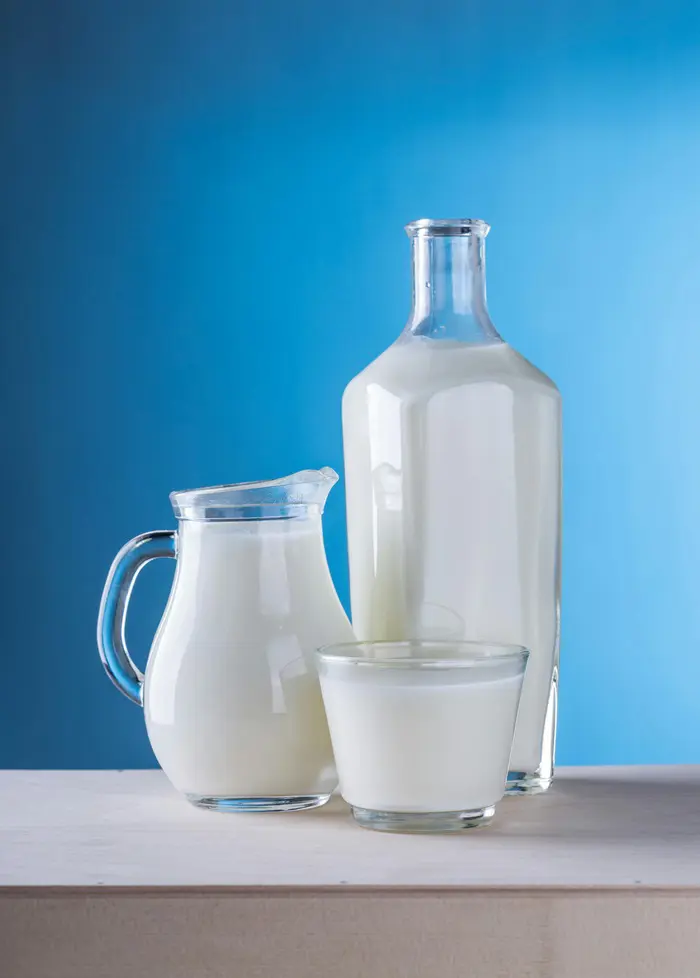
Milk is rich in vitamins and minerals like vitamin D, calcium, and vitamin B12. These nutrients aid in skin repair and hydration from the inside out. Including milk in your diet can promote overall skin health, making it more resilient and less prone to dryness.
The lactic acid in milk also acts as a natural exfoliant, promoting smoother skin. Opt for whole milk since it contains healthy fats that further nourish the skin.
11. Taking Honey
Honey is a natural humectant, meaning it draws moisture into the skin. Applying honey directly to dry patches may offer immediate relief and hydration. Its antimicrobial properties can also aid heal minor irritations.
For a simple home remedy, spread a thin layer of raw honey on your face or other dry areas, leave it on for about 20 minutes, and then rinse off with lukewarm water. Regular use can leave your skin feeling soft, supple, and rejuvenated.
12. Using Aloe Vera
Aloe vera is renowned for its soothing and hydrating properties. The gel extracted from aloe vera leaves contains vitamins and antioxidants. Using aloe vera gel to dry skin can provide a cooling sensation and hydration.
It helps to reduce redness and irritation, making it ideal for sensitive skin types. It is better to use fresh aloe vera gel directly from the plant. Putting aloe vera into your skincare routine can maintain a hydrated complexion.
13. Sunflower Seed Oil
Sunflower seed oil is rich in essential fatty acids and serves as a moisturizer for dry skin. This oil's linoleic acid content helps reinforce the skin's barrier and prevent dehydration. It's lightweight and non-comedogenic, making it suitable for all skin types.
Consistent application can help reduce the symptoms of dry skin, leaving it soft, smooth, and well-hydrated. This natural remedy is packed with vitamin E, which promotes skin healing and regeneration.
14. Using Rosewater
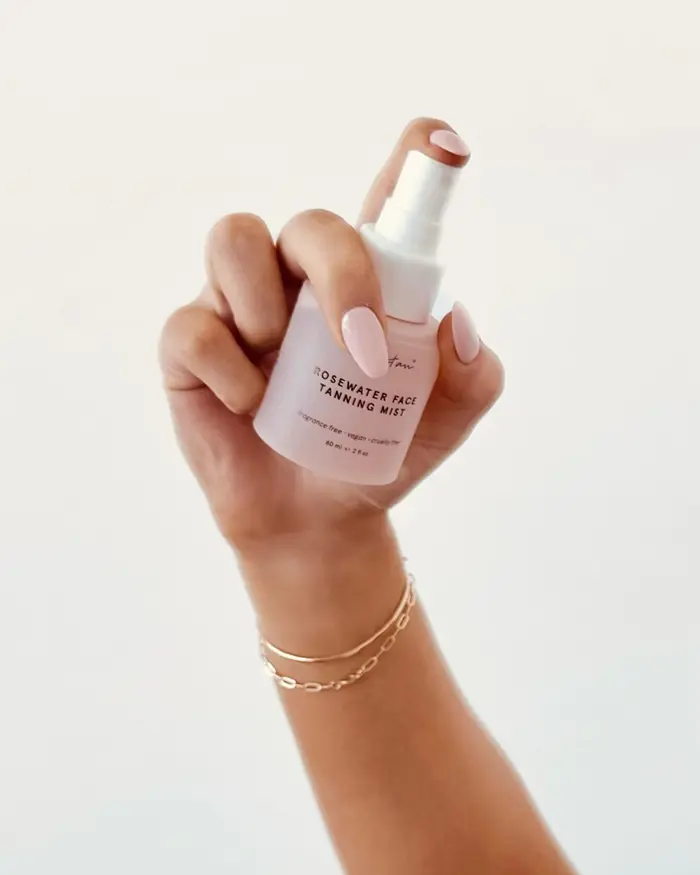
Imagine a refreshing mist that not only cools but hydrates your skin! That's rosewater for you. With its natural astringent properties, rosewater balances your skin's pH levels and tightens pores. You can spritz your face with rosewater after cleansing, or use it as a toner with a cotton pad.
Its anti-inflammatory properties help soothe irritation and redness, making it a perfect remedy for dry skin. The pleasant fragrance is a bonus, turning your skincare routine into a spa-like experience.
15. Cucumber Slices
For an immediate hydration boost, look for cucumber slices. These cool vegetables are composed of about 96% water, making them perfect for your dry skin. Slice a fresh cucumber and place it directly onto your face, targeting dry areas.
Leave them on for 15-20 minutes. The natural cooling effect reduces puffiness and irritation, while the vitamins and minerals nourish the skin. After removing the slices, your skin feels instantly refreshed and hydrated.
16. Egg Yolk Mask
Rich in vitamins A and E, egg yolk is a good dry skin treatment at home. Simply separate the yolk from the white and apply it directly to your face. Leave it on for 20 minutes before rinsing with lukewarm water.
The yolk's natural fats and proteins can nourish and hydrate the skin, enhancing its elasticity and smoothness. Consistent use could help restore the skin's natural moisture barrier. This makes it an effective treatment for dryness and flakiness.
17. Green Tea
Packed with antioxidants and anti-inflammatory properties, green tea is an excellent home remedy for dry skin. Brew a cup of green tea and let it cool. Once cool, use a cotton ball to apply the tea to your face.
Green tea aids in soothing irritation and redness, while also providing gentle hydration. Green tea in your skincare routine means improved skin texture and protection against environmental damage.
18. Avocado Mask

Rich in healthy fats and vitamins, an avocado mask is a fantastic remedy for dry skin. Mash a ripe avocado and apply it directly to your face. The natural oils and nutrients in avocado help to moisturize and repair skin.
You should leave the mask on for about 15-20 minutes, then rinse with lukewarm water. This natural treatment can hydrate and rejuvenate dry skin, leaving it feeling soft and supple. Utilize this mask regularly for the best results.
19. Using Banana Mash
Bananas are rich in potassium and vitamins. They offer a simple yet effective solution for dry skin. Begin by mashing a ripe banana until it forms a smooth paste. Apply this paste evenly to your face and let it sit for about 15-20 minutes.
Bananas assist in moisturizing and softening the skin. Their natural oils and antioxidants also provide nourishment and improve skin elasticity. Rinse off with lukewarm water, and enjoy a refreshed complexion.
20. Glycerin
Glycerin is a powerful humectant, drawing moisture from the environment into your skin. To use glycerin for dry skin, combine equal parts of water or rose water, then apply it to your face with a cotton ball.
This product can enhance the skin’s barrier function, preventing further moisture loss. It’s a non-greasy option that suits all skin types. Incorporate glycerin into your daily skincare routine after cleansing and before using a moisturizer.
21. Apple Cider Vinegar
Apple cider vinegar (ACV) is a natural remedy for dry skin due to its antibacterial and pH-balancing properties. However, it is important to dilute ACV with water first. Apply it to the skin using a cotton ball to help restore the skin's natural acidity, preventing dryness.
Its mild exfoliating effect can remove dead skin cells, promoting smoother and more hydrated skin. Ensure to moisturize afterward to lock in hydration. Remember to perform a patch test to stop adverse reactions.
Dry Skin Prevention
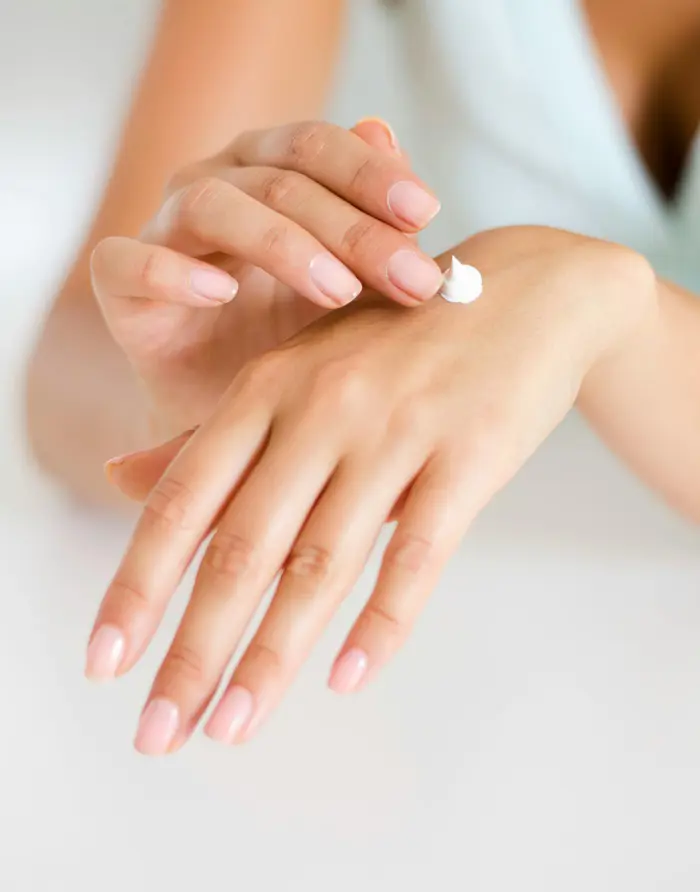
Some people can wonder how to treat dry skin at home, but you should not prioritize treatment first. Prevention of dry skin is better than cure since it maintains skin health, reduces the need for extensive treatments, and stops discomfort associated with dry skin.
You need to actively take necessary preventative measures to avoid dry skin formation. Preventative measures involve adopting a consistent skincare routine and making lifestyle adjustments.
Ways to Prevent Dry Skin
Start with using a gentle cleanser to avoid stripping natural oils. You can also follow up with a rich moisturizer after bathing to lock in moisture.
Utilize a humidifier in your living space to maintain indoor humidity levels, especially during winter months. Remember to drink plenty of water to keep your skin hydrated from the inside out.
It is vital to avoid hot showers since they can dehydrate the skin. Wear protective clothing and sunscreen when exposed to harsh weather conditions.
When To Consult A Doctor?
Although home remedies can be effective for managing dry skin, there are situations when professional medical advice is necessary. If dry skin persists despite using home remedies, an underlying health condition could be present.
A doctor can provide a proper diagnosis and recommend treatments tailored to your specific needs. This will ensure that any serious conditions are addressed promptly and effectively.
Here are some of the situations that you need to watch out for:
- Severe Itching or Pain - Extreme discomfort that interferes with daily activities or sleep can signal more serious issues like eczema or psoriasis.
- Accompanying Symptoms - Dry skin combined with symptoms like fatigue, weight loss, or fever could indicate thyroid disorders or diabetes. If you witness these accompanying symptoms, you should visit a doctor promptly.
- Signs of Infection - If you see redness, swelling, or pus, then you might suggest an infection that requires prescription treatment.
- Persistent Symptoms - When your skin's dryness doesn’t improve with home remedies or worsens over time, it may imply a medical condition that requires a doctor's visit.
- Widespread Skin Changes - Significant changes in skin texture might signal systemic conditions like eczema or psoriasis.
- Unexplained Skin Issues - Dry skin with no clear cause or associated symptoms can be linked to an internal health issue that requires diagnosis.
Recent posts
Lifestyle
Lifestyle
20+ At Home Remedies For Nausea
Nausea can affect any of us, any time of the day. Though nausea has unexpected timing, fortunately, there are several natural and simple home remedies that are effective in healing the discomfort. From foods that help calm the stomach to breathing te...
Lifestyle
How to Get Rid of Neck Pain: 10 Home Remedies To Fix Stiff Neck
Neck pain is a common issue of today, affecting more than one-third population of the US. The common causes that often lead to stiff neck include sleeping in an awkward position that involves straining of the neck, sitting in a bad posture for long p...
Lifestyle
10 Home Remedies For Loose Motion and Diarrhea
When in tough times, due to issues like loose motion or diarrhea, it would be reassuring for you to know that there are remedies, that also in your own pantry! Whatever the cause may be, be it an infection, food intolerance, or stress, these ingredie...
Lifestyle
How To Eat A Star Fruit
Star fruit is a tropical fruit known for its unique star-like appearance. The fruit can be enjoyed simply, on its own or by adding it on recipes where its extra burst of color and sweet-tart taste can blend well with other ingredients. Whichever way ...
Lifestyle
Is Yogurt Good For You?
Yogurt is a dairy product, a nutrient-packed food. It is often hailed as a health food and there are good reasons for this. If we look into the nutrients present in yogurt; it has numerous of them essential for functioning of our body. In this articl...
Lifestyle
Is Vegan Diet Actually Healthy?
A vegan diet is considered healthy but not most of the time. As all vegan foods have many beneficial nutrients, they also lack some which often sparks the debate. Without animal products, a vegan diet can be believed to have significant health benefi...


